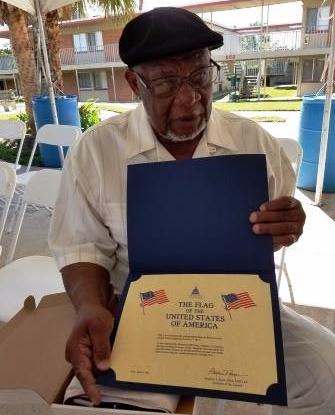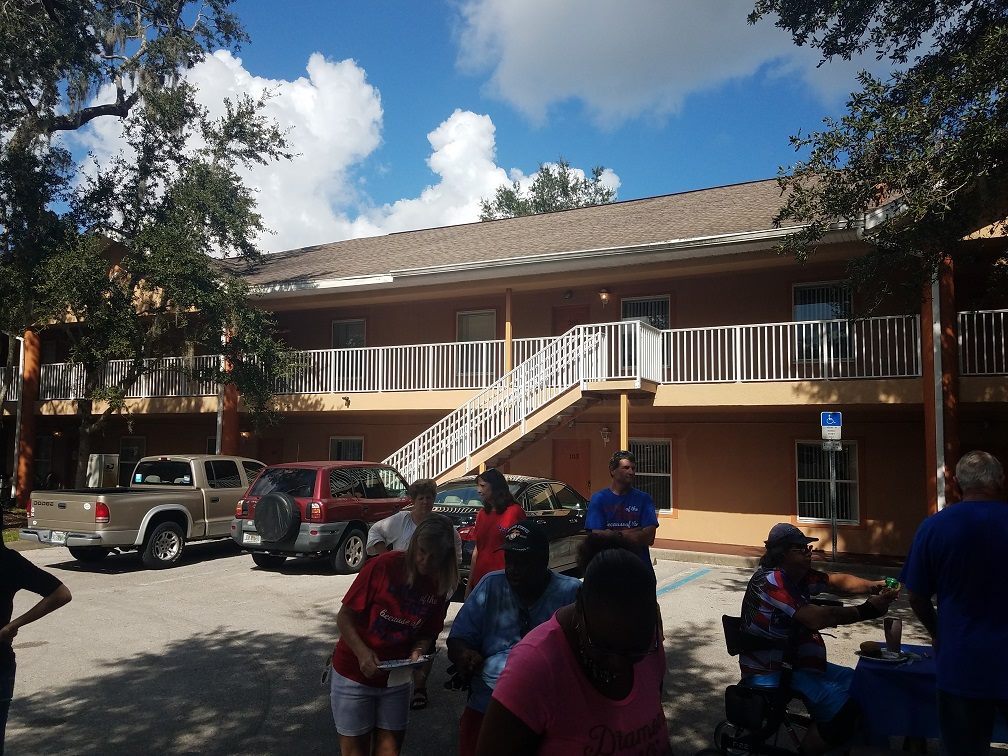Providing a Doorway to a Brighter Future!
Providing a Doorway to a Brighter Future!
HfH offers a variety of housing and supportive services for Veterans experiencing homelessness: Bridge Housing, Low Demand, Service Intensive, Case Management, and Permanent Housing.
Referrals are received through Veterans Affairs (VA) and other agencies.

Low Demand is for chronically homeless Veterans and Veterans who have been unsuccessful in traditional treatment settings. Low Demand does not require sobriety or compliance with mental health treatment as a condition of admission or continued stay, and typically assists the Veteran for up to 2 years. Overall, demands are kept to a minimum; however, services are available as needed and 24/7 security is provided in a 10-unit apartment building set in our Victory Village wooded campus in Titusville. The goal is to assist the Veteran’s integration into society.
Supportive Services in Low Demand may include job training, job placement, applying for disability benefits, budgeting and other educational classes, counseling, social activities, transportation, and other relevant services designed for increasing self-sufficiency and independence.
Intensive Services are for Veterans experiencing homelessness, who have lower acuity, i.e. they have less critical social or medical issues than those in Low Demand, but are still offered the same wide range of supportive services.
Veterans who have completed Supportive Services with HfH or other VA Programs, and who are now in their own homes, but require some support for up to six months, can receive ongoing Case Management Services. This helps ensure they have a sustainable lifestyle, enabling them to remain in their homes.

HfH Supportive Housing has 10 housing units for retired and permanently disabled Veterans, also set in our Victory Village wooded campus in Titusville. The tranquil setting allows our disabled Veterans to enjoy their daily activities without concern of external stress that may disrupt their ability to remain in a stable environment. The level of support is less intense, and the case management and individual plans are designed to meet the needs of each Veteran as his or her needs change.
A Veteran must be experiencing homelessness and have confirming documentation from an organization like the Veteran’s Administration, law enforcement, Salvation Army, shelters, churches, etc. Applicant must produce identification such as driver’s license, DD 214, Social Security card, birth certificate, or state identification card. Disabled Veterans must have proof of disability.